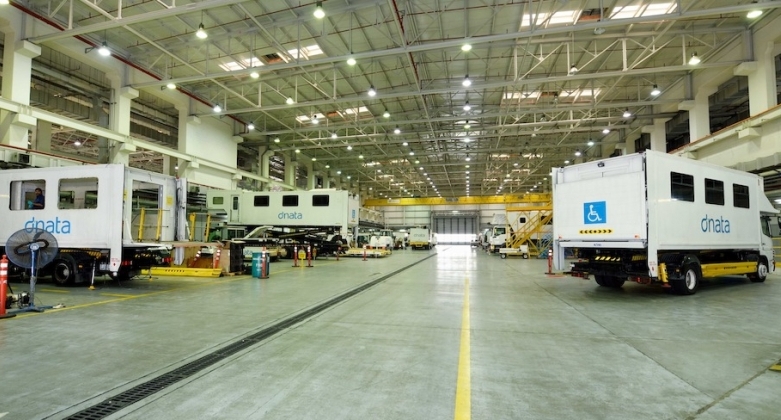dnata to reduce waste by 250 tonnes through recycling programme
Aviation - One of the world’s leading air services providers, dnata has ramped up its recycling programme for its fleet of 12,000 units of GSE (Ground Services Equipment) in both of its Dubai hubs (DXB and DWC).

August 24, 2017: One of the world’s leading air services providers, dnata has ramped up its recycling programme for its fleet of 12,000 units of GSE (Ground Services Equipment) in both of its Dubai hubs (DXB and DWC).
Since the launch of the recycling programme this year, over 80 units of GSE have been renewed at the GSE maintenance base, reducing waste generated from GSE by 110 tonnes while passing all safety and quality checks. The projection for 2017 is an estimated 140 pieces of GSE being recycled, saving the company approximately over AED 13 million, and reducing waste by 250 tonnes.
As GSE reach the end of their life cycle, they were previously replaced with newer versions. However, given the sturdy and enduring nature of the machinery, the GSE mostly simply required a mechanical overhaul to be put back into service. The dnata GSE maintenance facility, located at DXB airport spans 36,000 sqm and employs 1,145 dedicated team members who carefully check the GSE for any faults before replacing parts that need renewing, therefore extending the lifespan to up to 18 years.
“Our reality is that sustainability is necessity, not a choice, and at dnata, we endeavour to meaningfully fulfil our environmental responsibility wherever we operate. We are extremely motivated by the success of our GSE recycling programme in Dubai. It provides us with a tangible way to reduce our carbon footprint at the source, rather than carbon offsetting as a way of merely clearing the corporate conscience,” said Gary Chapman, president, dnata.
“It has been rewarding to see the impact of this initiative, and it is the start of many initiatives dnata has in the pipeline to bring about a change in the way we use resources, in our effort to promote sustainability. We are getting creative and innovative when collaborating with our equipment suppliers, to seek more environmental efficiencies for our fleet,” he added.
Other initiatives for a greener operation also include the conversion of all forklifts in dnata’s cargo operations to electric. Out of a fleet of 102 forklifts in Dubai, currently, already 73 are electric, with the rest being diesel powered. The plan is to replace all current diesel forklifts by the end of 2017 with electric alternatives – reducing the carbon footprint at dnata’s cargo operations by 80 percent, generating a fuel savings (consumption) of 200,000 litres per year, and CO2 emissions reduction of 47 tonnes per year. Globally, over 300 pieces of environmentally-friendly electric tow trucks, forklifts, conveyor belts and push back tractors are in dnata’s operations today, and this number is on the rise.


